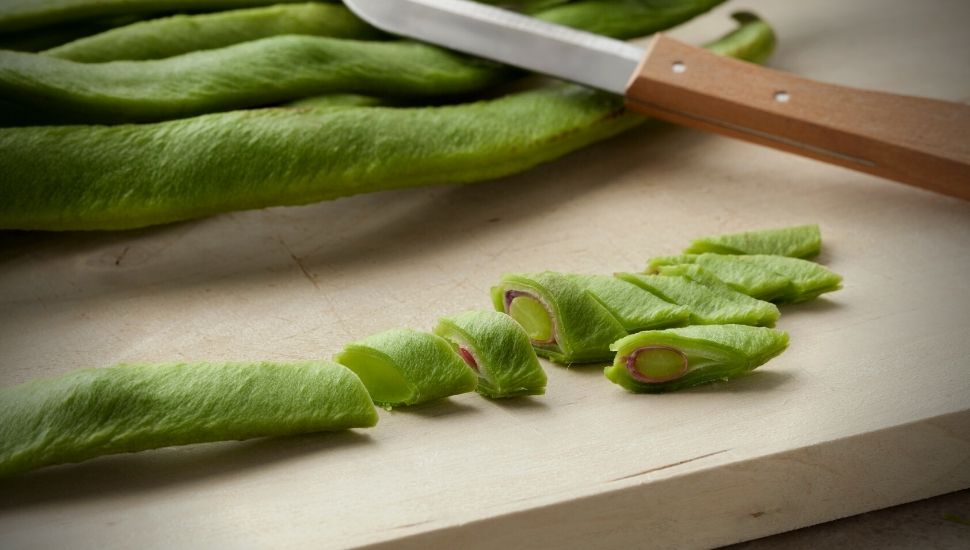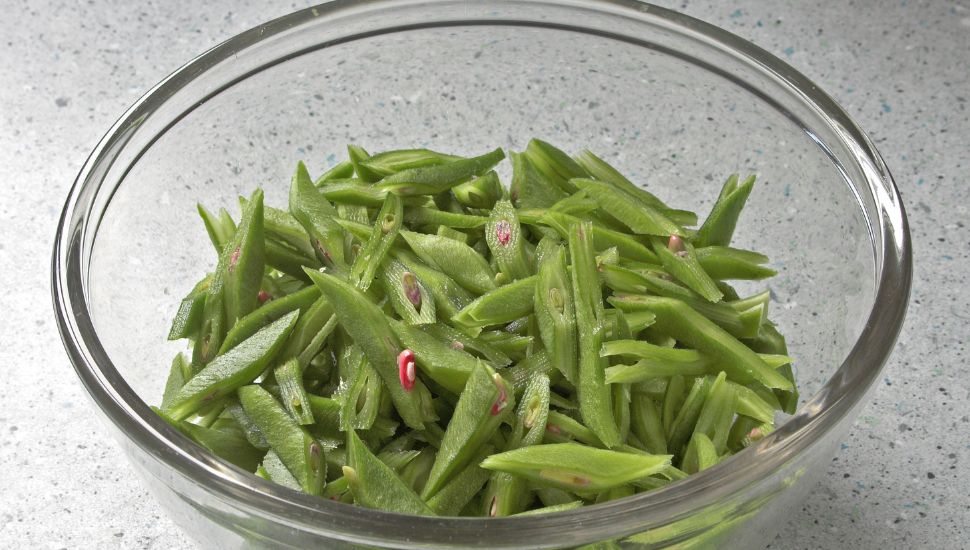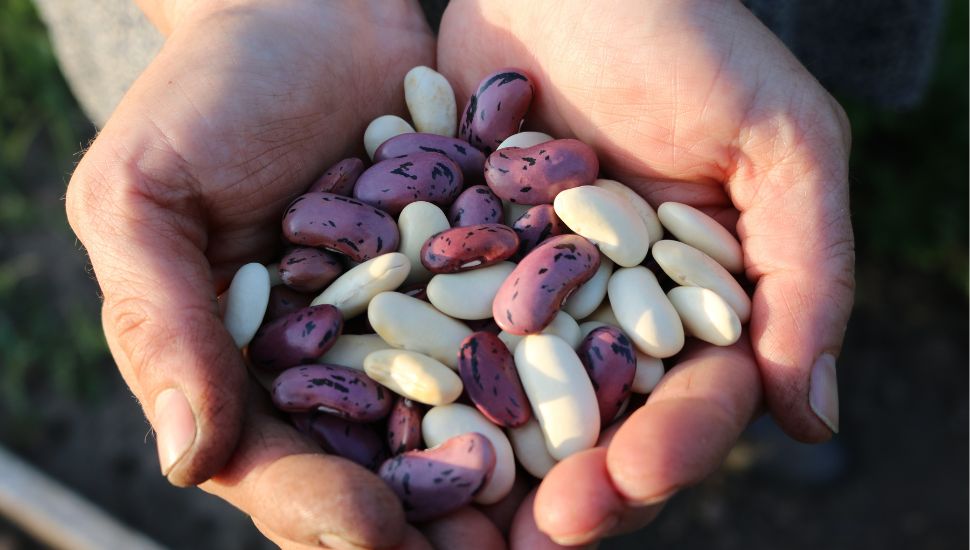
Runner beans are a favorite summer food for most people because they are full of nutrients and deliciousness. They also grow very quickly and in large quantities, which is why most people grow their own runner beans.
But the question is when you get a massive stock of runner beans from your garden, what should you do? Should you let them go to waste because it becomes impossible to consume all of them?
Personally, it would be a shame if I had to throw away my beans because I love to eat them as a side with my chicken roast. So, what can we do?
Well, for starters, we can store them for some chilly nights when you want to make soup or roast them with turkey on Thanksgiving. But how to freeze them?
I know that they taste the best when they are at their prime (neither unripe nor overripe), but you can’t consume 2-3 kg of beans at once, and if you leave them for a few days, they can become overripe. So, to enjoy them longer, we freeze them.
To learn how to quickly and correctly freeze runner beans, you have to read till the end. So, let’s take a look at how to freeze them.
How To Freeze Runner Beans?
Runner beans are easy to freeze; you have to do a little preparation, and you are all set to freeze them for later use.

I am going to give you the most fool proof-est way to freeze them, but you will have to be super cautious about timing as blanching them for longer can change their texture.
Here are 5 simple steps to help you freeze runner beans
Wash them
After you harvest your beans or buy them from the market, you must clean them thoroughly to get rid of any small insects, dust, or chemicals on them. First, you can wash them in the sink and then put them in a strainer to drain the water.
Time to trim
Then, you have to trim both edges of the beans, pick up a bean at a time, and chop off both sides. You can also live a lot of beans together on a chopping board and trim those in one go,
Chop, chop
After trimming, chop them into pieces because you can’t freeze the whole beans. Chopping them into small pieces also allows easy storage and saves you time for the next time you want to cook them.
Blanch them
Now it’s time to blanch them, fill your pot with water, and submerge them. Bring the pot to a boil and let it simmer for 3 minutes. Blanching locks all the beans’ nutrients and stops the ripening factor.
However, you should not blanch them for more than 3 minutes because then the beans can lose their color and flavor.
Cool em’ and freeze em.’
Drain the water, put the beans back in the strainer, and let them cool to room temperature. Once they are cool and dry, start making bags of as many beans as you would use at one time and seal them in an airtight freezer bag. Place them in the freezer, and voila! Your beans are perfectly frozen!
Pros and Cons of Freezing Runner Beans
Are you thinking about whether you should freeze the beans or not? If yes, then take a look at some of the pros and cons of freezing them to clear all your doubts.
Pros:
There is practically nothing wrong with freezing the beans. But here are some positive things you get out of it:
- You can enjoy them in their off-season for delicious dishes
- The taste and freshness stay intact when you freeze the beans
- They last pretty long in the freezer and don’t go bad
- Safe to freeze and eat afterward
Cons:
There are no cons; the beans stay fresh, keep their texture and taste intact, and are safe to freeze. So, don’t worry and freeze those runner beans that might go bad!
More readings:
- Does tequila freeze? (store tequila easily)
- Can you freeze rice pudding? (simple guide)
- Can you freeze wild garlic? (easiest method)
- Can you freeze chorizo? (thorough guide)
Do Runner Beans Freeze Well?
Runner beans freeze exceptionally well because of their water content; the more water a thing has, the better it will freeze.
The higher water content of these beans also ensures that they don’t go bad until you are ready to use them and defrost them.

So, if you freeze them properly, they will freeze super well, and you don’t have to worry about them once they are in the freezer.
However, if you are worried about your beans sticking together when they freeze, you can take them out and shake them after one hour of putting them in the freezer (this way, they will separate).
How Long Can You Freeze Runner Beans?
I know that fresh beans taste phenomenal, but since you have them in abundance and don’t want to waste them, the good idea is to freeze them.
However, the good news is that the beans you freeze are going to taste 99% like they taste fresh. So, when you freeze them the way I just mentioned, you can save the beans for up to 12 months.
But, you shouldn’t wait until the 12th month to eat them; instead, try to use them after 8-7 months because they taste best in the initial months. As the months’ pass, they may go stale.
A suggestion is to write the freezing date on the pack so you may keep track of the time.
Can You Refreeze Runner Beans?
Yes, you can refreeze the runner beans. But once they defrost, refreezing may affect the taste and texture of the beans.
This is why I suggest you shake the well while freezing the beans for the first time so that you may open the bag and take out as many runner beans as you want instead of defrosting the whole pack.
So, you can refreeze them, but it would be better if you avoid doing so.
How Do You Defrost Runner Beans?
You froze your runner beans to defrost them, right? That is why it is equally important to learn how to defrost them (like it was to learn how to freeze them). Now, there are three methods of defrosting your beans.
The first option is to take out the beans you want to use and put them in a colander, run water through them, which will start the defrosting process, and since they will be in small pieces, they will thaw in 5-10 minutes. Once they melt, they will be ready to use.
The second option is to take out the beans’ pack and put it on a plate on the kitchen counter; they will thaw in 15-20 minutes.
The third option is to put your runner beans in an oven-safe bowl and some water and microwave them for 45 seconds. 45 seconds are enough to thaw them but not cook them. Afterward, you can drain the water and use the beans.
How Long Do Runner Beans Last In The Freezer?
If you are putting your beans without slicing them in the freezer, then they will last up to 6 months in the freezer. But, if you cut and blanch your beans properly, they can last up to 12 months in the freezer.
However, don’t wait till the last month to use them; try to use them for around 6-7 months. Because if the beans can last 12 months, and you wait till the last month, then the runner bean season will be back, and you can use fresh beans instead. Therefore, use the beans in winter or fall.
Final Verdict
This was all you needed to know about runner beans. Now, if you have an abundance of beans, you don’t have to worry about them going bad or getting overripe because now you have a solution that can help you save the beans for a long time.
If you freeze and defrost them according to this guide, you will have perfect runner beans for later use. So, good luck at freezing the delicious runner beans like a pro.
Frequently Asked Questions
Can you freeze runner beans without blanching them first?
It is okay and safe to store your beans without blanching them. But, I don’t recommend doing it because if you blanch your beans, the nutrients, taste, and color get locked, and the beans stay fresh for 12 months. But, by no means is it crucial to blanch beans before freezing.
What happens if you freeze beans without blanching?
If you don’t blanch your runner beans, then nothing extreme would happen. The only thing that is going to happen is that your beans won’t have nutrients, color, and taste locked in it. This will only alter the flavor slightly.
References:









